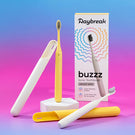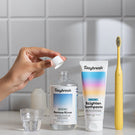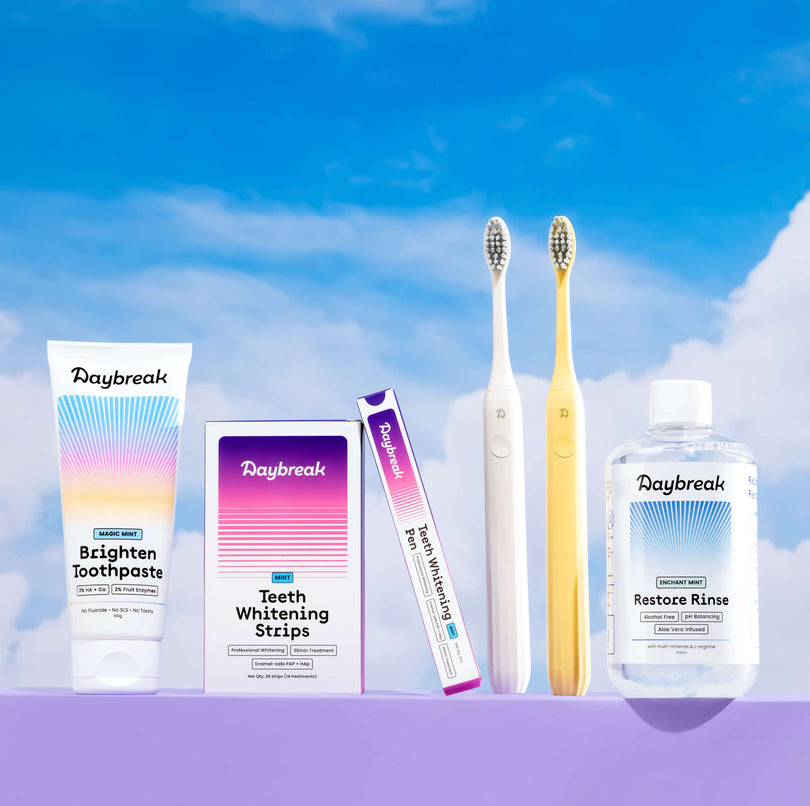Do you ever find yourself excessively grinding or clenching your teeth excessively? If you answer is ‘yes,’ then chances are you are suffering from ‘bruxism.’
Bruxism is a condition in which one tends to grind, gnash or clench one's teeth. It can occur when you’re awake or asleep. These forms of bruxism are commonly called:
- Awake bruxism (AB)
- Sleep bruxism (SB)
As the name suggests, with AB you clench your jaw and grind your teeth during the day. It is linked to one’s pre-existing emotional issues, feelings of anxiousness, stress or anger, which leads to the teeth grinding action. Concentrating on something for too long can also trigger it, but the good news is that with AB you are more likely to notice it and stop willfully. Stress management and learning ways to become aware of your tendency to grind teeth can also help. Very often, AB doesn’t require treatment.
However, with SB you grind your teeth while asleep and this may cause considerable harm. You might not get the help you need as the clenching might not come to your notice right away. Additionally, this can cause severe teeth problems & pain in your temporomandibular joints (TMJs); which connect your jawbone to your skull and allow you to open and close your mouth. Excessive clenching over a prolonged period can also lead to frequent headaches. It is not uncommon for people to use ~250 pounds of force while grinding their teeth during SB.
Okay, but what does this have to do with the pandemic?
To answer this question, we must first look at the key causes of bruxism:
- Smoking, alcohol and caffeine: A review of research conducted in 2016 found that people who smoked or drank alcohol regularly were about 2x more likely while those who consumed 8 or more cups of coffee per day were 1.5x more likely to have bruxism.
- Neurological conditions: Conditions such as Huntington’s disease and Parkinson’s disease can cause movement during sleep, which may result in bruxism.
- Medications: Bruxism can be a side effect of certain medications, including some antidepressants and antipsychotics. A 2018 study found a link between selective serotonin reuptake inhibitors (SSRIs) and bruxism.
- Stress and mental health issues: A 2020 systematic review found that there was a significant association between stress and bruxism while conditions such as anxiety and depression are also linked to bruxism.
And therein lies your answer! Historically, the prevalence rates of AB and SB have been about 20 and 8–16% respectively among adults. Since the Covid-19 pandemic, dental professionals have anecdotally noted a marked increase in the prevalence of bruxism among patients.
According to Dr. Pavan T.P., this may be attributed to the increased stress levels, including stress due to the constant threat of illness, financial concerns, social isolation, and worry for the safety and well-being of loved ones. If you are afraid, that you might be suffering from SB, keep an eye out for the following tell-tale symptoms:
- A feeling of fatigue or soreness in the jaw upon waking up
- Soreness of the teeth or gums upon waking up
- Experiencing temporal headaches in the morning
- Grinding or clenching your teeth during the day
If you are experiencing these symptoms, fret not. There are many things you can start doing to reduce the problem.
- Focus on relaxation: Try focused breathing exercises, listening to music or making exercise a regular part of your lifestyle to actually relax
- Pay attention to improving your sleep quality: Stick to a bed-time, stop using screens at least an hour prior & making sure your room is cool, dark and quiet
- Use an ice pack to help reduce jaw pain or swelling
- Get a dental check-up done
It also helps to reduce smoking, alcohol and caffeine intake as well as avoiding chewing gum.
A dentist will probably recommend a mouth guard or a mouth splint, which can be worn at night to protect your teeth. This is also customized to your upper & lower teeth.
TL;DR:
Daybreak recommends you see a dentist immediately if;
- you grind or clench your teeth as this may result in tooth damage or sensitive teeth
- you experience pain in your jaw, face, ear or unexplainable headaches especially in the mornings
- your partner says you're grinding your teeth in your sleep
- you're worried about your child grinding their teeth







